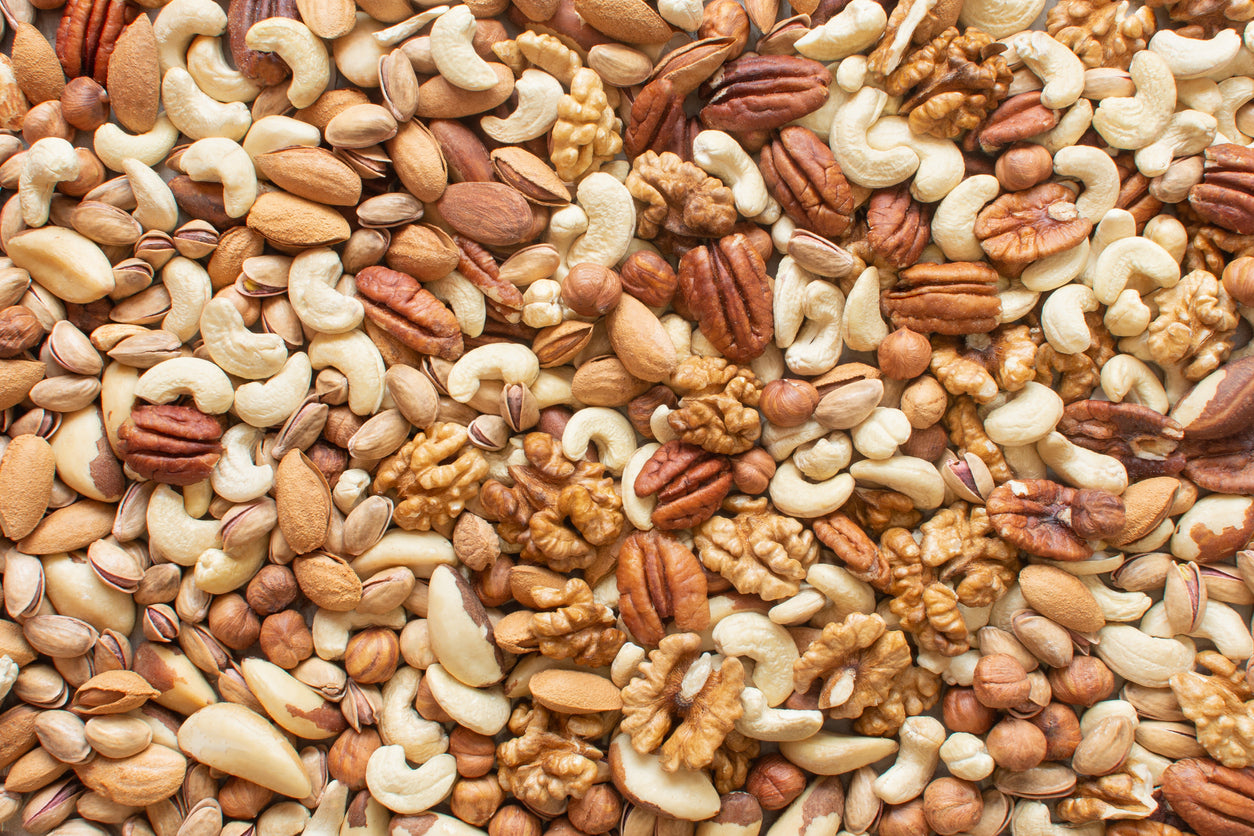was added to your cart
What are Mycotoxins exactly any how can they affect your health?

What are Mycotoxins exactly any how can they affect your health?
Everyone’s been there: You’re in the kitchen after a long day and you’re looking through your cupboard for a convenient snack to eat. You nibble on some cashew nuts, whilst you make yourself an oat milk latte to drink, along with your favourite organic granola bar. But as you wave those hunger pangs goodbye, should you be concerned about ingesting little fungi called mycotoxins along with your snack?
 What are Mycotoxins exactly?
What are Mycotoxins exactly?
As the name suggests, mycotoxins are toxins that are made by molds or tiny fungi. They’re essentially fungal poisons. These toxins can be made by two different groups of fungi: those that invade before harvest, aka field fungi, and those that invade after harvest, aka storage fungi. So they can be found growing on a range of different crops and foods, including cereals, nuts, dried fruits, spices and even coffee beans if they’re improperly stored.
These chemicals are toxic to a range of organisms, including plants, animals, other microbes and yes, as you might’ve already guessed, us humans too.
Mycotoxins and health risks
Mycotoxin exposure can range from harmless to nasty, with the capability to wreck DNA, and can trigger chronic disease, allergic reactions, asthma, gut problems and possibly even some forms of cancer. Yikes. This, reasonably, could be a bit of a cause for concern.
The effects of some food-borne mycotoxins can trigger acute symptoms such as nausea, gastrointestinal disturbances and vomiting. And these symptoms can appear shortly after consuming contaminated foods. But, in the majority of cases, there has to be quite a significant exposure over time, and to an extreme variant - think of it as a cumulative effect that builds up over time.
The key takeaway here is mycotoxins can be pretty nasty, but your body has you covered if you make sure your exposure remains low.
 What are the most common Mycotoxins around?
What are the most common Mycotoxins around?
There are a range of varieties of mycotoxins (over 300 to be exact), but about 20 have been shown to occur in foods at significant levels. According to experts, these are the mycotoxins that are currently of concern to humans:
Aflatoxin family: These are among the most poisonous, and they grow in soil, decaying vegetation, hay and grains.
Ochratoxin A: This is produced by several species and is a common mycotoxin. Contamination can occur in cereals, coffee beans, dry vine foods, grape juice, wine and spices.
Patulin: This mycotoxin is produced by a range of different species and is often found in rotting apples, moldy fruits, apple products and grains.
Fusarium family: This toxin commonly occurs in a range of different cereal crops, including wheat, oat and corn.
Now while all of this might sound scary (especially the names of the toxins!), don't worry, it's easy to limit your exposure to mycotoxins, and here’s how…
 Reducing exposure to Mycotoxins
Reducing exposure to Mycotoxins
Some of the foods with the highest contamination rates include corn (arguably one of the worst), peanuts (a close runner up), alcohol (think wine and beers), rye, wheat, barley, soybeans, coconut oil and raisins.
A good starting point would be to lower your exposure to these kinds of foods, especially if you are a heavy consumer of these products.
Other steps that you can follow include:
- Look to buy the freshest food possible, ideally locally produced, since this means the food hasn’t been stored away for a very long time.
- If you enjoy eating nuts as much as we do, store your nuts and seeds in the fridge unless you are consuming them quickly.
- When you’re shopping for coffee, purchase it from suppliers who routinely test for mycotoxin contamination.
- Ensure that your foods are stored away properly. Remember: mold love warm and moist environments, so keep your foods stored in a cool, dry environment.
- Include a daily probiotic supplement to help reduce your mycotoxin load. The beneficial gut bacteria found in probiotics bind with mycotoxins and help prevent their absorption in the small intestine. A multispecies supplement, such as our Pro Bio Cultures Complex with 21 live bacterial strains and a 60 Billion CFU count, is an ideal option.
So, should you be worried about Mycotoxins in your diet?
Mycotoxins are basically omnipresent, they’re found everywhere. If you keep your exposure low by consuming foods and drinks that are handled with care and if you keep your living space clean, you’ll be fine. Plus, over 100 countries around the world have specific regulations in place to keep food entering our supermarkets free from highly contaminated products. On the flip side, your liver is always there as a backup for any toxins that do get through, right?

Riya Lakhani ANutr is a registered nutritionist and health writer with a special interest in plant-based nutrition. She has completed a Bachelor’s and Master’s degree in Human Nutrition, and has developed a passion for writing about all things plant-based.
